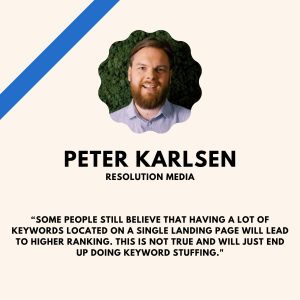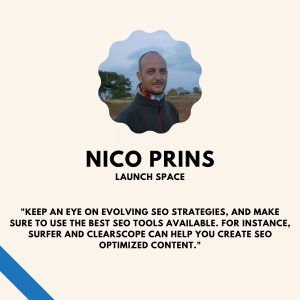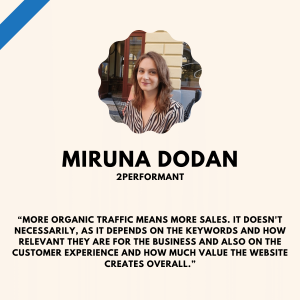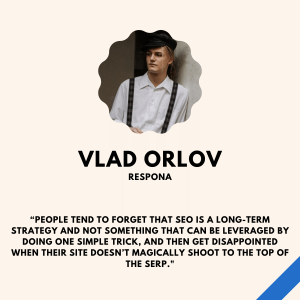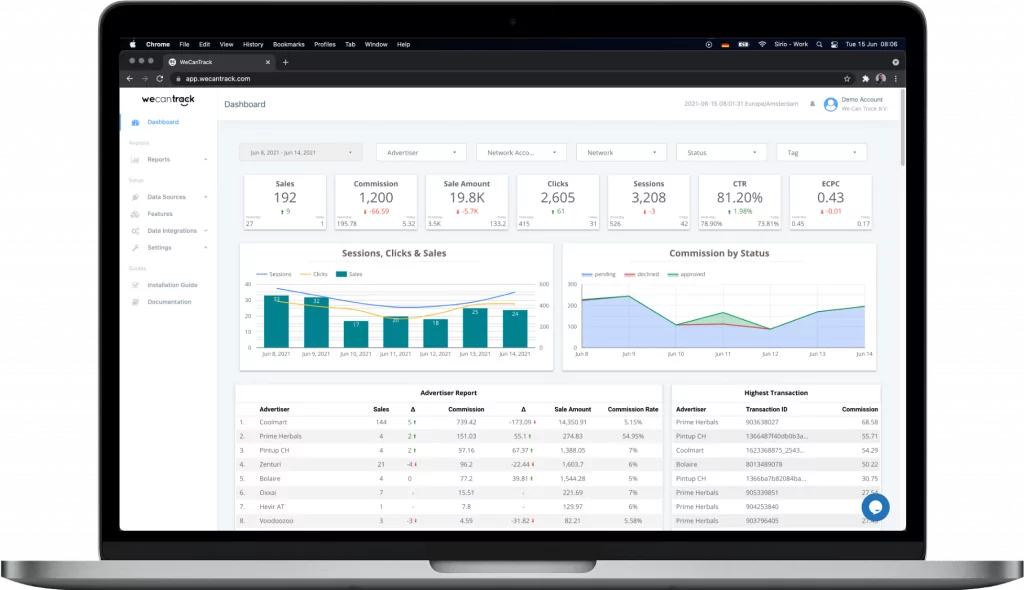Are you pouring your heart and soul into promoting affiliate products, but your website isn’t generating the clicks and conversions you deserve? You’re not alone. Affiliate marketing can be a competitive field, and ranking high in search results is crucial for driving traffic to your affiliate links.
The truth is, many affiliate marketers struggle with SEO (Search Engine Optimization). Without a strong SEO strategy, your website might get buried under a mountain of competitors, making it nearly impossible for potential customers to find your amazing content and product recommendations.
The good news is, with the right approach, you can leverage SEO to turn things around. In this article, we’ve assembled insights from eight industry experts to provide you with a treasure trove of SEO tips specifically designed for affiliate marketers.
Table of Contents
Why Affiliate Marketing And SEO Are Like Bread And Butter
When you think about it, affiliate marketing and SEO are a bit like bread and butter.
No, really, stay with us.
SEO can smear the wheels of your affiliate marketing machine and make it more appetizing. It can really help bring out the best in your affiliate marketing machine. In quite the same way as that smear of butter brings out the best in your piece of bread.
But not everybody likes the taste of butter. And not everybody feels like SEO is a good addition to their affiliate marketing efforts.
And then there are the people who simply don’t know how to use butter properly. They can’t wait for the butter to soften and cram it on, destroying the bread. As you probably know, impatience is destructive for SEO aspirations.
Why all this talk about bread and butter, you ask?
Well, for one, because we quite liked the analogy.
But mostly because it paints the main issue we’re trying to tackle in this article. Namely while SEO and affiliate marketing can make an excellent fit, many affiliate marketers decide not to use SEO.
Or, perhaps even more tragic, they implement it, but do so with the wrong knowledge, based on the wrong assumptions or persistent misconceptions, and then toss it out when it doesn’t deliver fast enough.

For increased website ranking, affiliates should focus on keyword research, mobile optimization, and creating valuable, shareable content that resonates with their target audience.
What Is SEO Affiliate Marketing?
SEO affiliate marketing means leveraging organic results in Google to attract people to your affiliate website. This is done by writing the type of content that ranks for the topics your audience searches for on Google.
In other words: do your keyword research (to figure out what your target audience is searching for) and write great, informative content to fulfill their search intention.
The great thing about SEO affiliate marketing is that you’re building a free stream of traffic to your affiliate site. This makes it much easier to profit from your affiliate sales than when you have to pay to get those visitors via Google Ads.
Furthermore, SEO is an ongoing process, and if done right, it actually attracts more and more people every month. As long as you keep adding fresh content to serve additional searches and keep working on improving your rankings.
In fact, our love for SEO affiliate marketing was the reason for asking these experts for their favorite SEO tips for affiliate marketing.
8 SEO Experts And Their Insights Into Affiliate Marketing And SEO
Enough with the metaphors, you are reading this because you want to know what knowledgeable people have to teach us about SEO. We’ll say no more, here are the insights of no less than 8 SEO experts on affiliate marketing.
We asked them each five questions:
- What is the biggest and most persistent misconception about SEO about affiliate marketing?
- Are there any common SEO mistakes you see being made on affiliate websites?
- What is the biggest mistake – from an SEO point of view – someone can make when starting out as an affiliate marketer?
- How about in the long run? Is there any SEO mistake that you feel could potentially cripple an affiliate business?
- Do you feel like there are any SEO opportunities or best practices that many affiliate websites don’t leverage?
The results are below. We hope you’ll find as much worth and wisdom in them as we have. Pleasant reading!
1. Peter Karlsen, SEO manager at Resolution Media
“Peter started working with SEO and affiliate marketing at an Amsterdam-based company, where he helped Danes find the best offers, deals, and coupons on their favorite web shops within Europe. Later, he was writing product reviews combined with affiliate links. Currently, he is working on his own affiliate site within the travel niche.”
What Is The Biggest And Most Persistent Misconception About SEO?
” Some people still believe that having a lot of keywords located on a single landing page will lead to higher ranking. This is not true and will just end up doing keyword stuffing.
In addition to this, the quality of your content plays a critical role to help you rank higher on the search engines. If you are not delivering high-quality content, you won’t rank higher.”
Are There Any Common SEO Mistakes You See Being Made On Affiliate Websites?
According to Peter, there are three common SEO mistakes:
- The misuse of the same keyword at a given landing page. Repeating the same keywords, phrases, and contexts won’t give a higher ranking on a search engine.
- Not understanding your users’ search intent about your affiliate niche and keyword(s). Understanding your user’s search intent is critical to getting traffic that will convert in the end.
- Writing a lot of content that doesn’t answer your user’s search intent. You should always be straight to the point and try to answer the user’s questions best.
What Is The Biggest Mistake – From An SEO Point Of View
“Trying to do everything at once. First you should determine what kind of niche you’ll work in and how you will stand out from your competitors. Then you should do a proper and very detailed keyword analysis, which will be the baseline for your content strategy and URL-structure. Be patient – SEO and affiliate marketing takes time.”
How About In The Long Run? Is There Any SEO Mistake That You Feel Could Potentially Cripple An Affiliate Business
“Forgetting to update the content, so it reflects the current intent and time. For example, it won’t help if you are promoting outdated products or if the year in the title tag or descriptions are outdated.”
Do You Feel Like There Are Any SEO Opportunities Or Best Practices That Many Affiliate Websites Don’t Use?
“Transforming your user data to relevant infographics, which can be used to create a meaningful and relevant PR strategy and link building tactic – This is great for SEO!”
2. Jan-Willem Bobbink, Freelance SEO specialist at notprovided.eu
Jan-Willem got addicted to online marketing in 2004 when he built and ranked his first international webshop. Over the years, he has developed extensive knowledge of performance marketing by building multiple affiliate marketing concepts. In 2011, he decided to take the next step in his career: utilize his SEO knowledge for the bigger players in the market. He is now responsible for international visibility campaigns for many clients.
What Is The Biggest And Most Persistent Misconception About SEO In Relation To Affiliate Marketing?
“That affiliate links can hurt your SEO results. Google has an algorithm, but that set of rules doesn’t hate affiliates or their links. You just need to provide value to Google’s users.”
Are There Any Common SEO Mistakes You See Being Made On Affiliate Websites?
“Too much (automated) low value content being created in a short time frame. You need more time than ever to earn your spots amongst the top ranking websites. Make sure you align properly with the search intent.”
What Is The Biggest Mistake – From An SEO Point Of View?
“Focusing too much attention on pushing out many content and pages at once. You’ll need to support that with enough external mentions and links, otherwise it will be a slow and painful process. Better start out with only a handful of high quality pages and slowly build up your presence across the web.”
How About In The Long Run? Is There Any SEO Mistake That You Feel Could Potentially Cripple An Affiliate Business?
“Being overly aggressive in link building might trigger Google’s thresholds and result in manual penalties or devaluation of rankings over time.”
Do You Feel Like There Are Any SEO Opportunities Or Best Practices That Many Affiliate Websites Don’t Use?
“Mapping search intent to pages properly. Make sure it’s clear to Google what the angle is you are taking. This raises your opportunity of being shown to someone with that particular search intent.”
3. Nico Prins, Founder at Launch Space
Nico provides SEO and link-building services for SaaS and marketing sites. Over the years, he has run several websites that generate leads through SEO and revenue through affiliate marketing.
What Is The Biggest And Most Persistent Misconception About SEO In Relation To Affiliate Marketing?
“That you need to directly rank for buying terms in order to earn an income. A better, long-term approach is to collect leads and then develop a relationship with that audience through email marketing or other channels.
This approach helps you manage any negative changes in your search rankings, thus making you less reliant on SEO and the Google algorithm.”
Are There Any Common SEO Mistakes You See Being Made On Affiliate Websites?
“Thinking that you can earn a quick income overnight through SEO. It’s a slog, because people are fighting over the most profitable keywords.”
What Is The Biggest Mistake – From An SEO Point Of View – Someone Can Make When Starting Out As An Affiliate Marketer?
“Failing to do comprehensive competitor analysis and, as a result, picking (to) difficult search terms to rank for.”
How About In The Long Run? Is There Any SEO Mistake That You Feel Could Potentially Cripple An Affiliate Business?
“Not keeping up with the latest SEO trends. SEO is continually evolving. You’ll reap the biggest benefits by being at the forefront of new trends.”
Do You Feel Like There Are Any SEO Opportunities Or Best Practices That Many Affiliate Websites Don’t Use?
“Keep an eye on evolving SEO strategies, and make sure to use the best SEO tools available. For instance, Surfer and Clearscope can help you create SEO optimized content. A lot of successful companies are using these types of tools, and so should you.”
4. Dave Mac, Affiliate Marketer
Dave has been specializing in SEO since 2007 to rank articles and blogs for his own affiliate marketing campaigns.
What Is The Biggest And Most Persistent Misconception About SEO In Relation To Affiliate Marketing?
“The biggest misconception around SEO is that any single person or “guru” has all the answers. SEO is far more nuanced than most people believe. As a result you should take input and ideas from multiple “experts”, forums, and Youtube channels, combine those ideas and find a strategy that works for you.
My advice? Listen to everyone, but don’t take anyone’s opinion as absolute. Run your own tests and make your own way.”
Are There Any Common SEO Mistakes You See Being Made On Affiliate Websites?
“Attempting to SEO a blog about making money online when you have no experience actually making money online. From an SEO perspective the competition is too fierce. Additionally, the small amount of traffic you will get is likely to understand that you don’t have any experience and will quickly hit the back button.
Another major one is writing for the search engines rather than writing for real people. Sure, you have to keyword optimize your blog posts, but not to the point that they are unreadable.”
What Is The Biggest Mistake – From An SEO Point Of View – Someone Can Make When Starting Out As An Affiliate Marketer?
“Having a short-term strategy (or no strategy) when entering a niche that is super-competitive. In a super-competitive niche affiliate marketers need to have a long-term SEO vision for their properties. Failing this, affiliate marketers need to have a short to mid-term strategy targeting the less-competitive fringes of the niche.”
How About In The Long Run? Is There Any SEO Mistake That You Feel Could Potentially Cripple An Affiliate Business?
“If you’re relying on Google as your main traffic source (and the majority of affiliates would be) then there is unlimited potential for crippling your affiliate business.
As we know, Google is constantly changing the rules and updating their algorithms, so something that is okay now may not be in the future. My advice is do what works for you (even if you feel Google may not “like” it) unless you have a property that is a long-term focus.
If you have a property that is a long-term project that you want to turn into a money-earner for years to come, just follow a strategy of writing good, engaging content that people will share.”
Do You Feel Like There Are Any SEO Opportunities Or Best Practices That Many Affiliate Websites Don’t Use?
“I feel there are many strategies that affiliates avoid out of fear of what Google may think or do. They know they are one algorithm change away from destruction so they hesitate to repeat that keyword or get that backlink.
Trouble is, Google is going to do what it wants anyway – and that could mean obliterating the site you are so worried about. So build your affiliate business around a strategy of risk mitigation rather than fear. Do what works, but always have a backup plan for that inevitable Google update.”
5. Sjoerd Copier, CEO at Saleduck
Sjoerd has been active within the SEO and affiliate marketing industry for over 13 years. He has worked for both big corporations and startups.
What Is The Biggest And Most Persistent Misconception About SEO In Relation To Affiliate Marketing?
“That SEO is the only channel that can give you a profit. PPC and social can still be profitable within the correct niche.”
Are There Any Common SEO Mistakes You See Being Made On Affiliate Websites?
“Not going for a niche is one of the main mistakes people make when they start with affiliate marketing. Trying to rank for keywords like “Shoes” instead of making a website focussed on shoes in odd sizes, for example, where the competition is much lower. Keywords with low volume can still drive you great sales.”
What Is The Biggest Mistake – From An SEO Point Of View – Someone Can Make When Starting As An Affiliate Marketer?
“Besides trying to go too broad, one of the other mistakes we often see is not adding any real value to the user. This is often referred to as “Thin affiliate” websites. Focus on a niche that you are excited about and answer questions, or solve issues the industry has.”
How About In The Long Run? Is There Any SEO Mistake That You Feel Could Potentially Cripple An Affiliate Business?
“One mistake that really comes to mind is when people switch away from a CMS to a custom build platform. A lot of technical SEO aspects come into play when making a move like that. If your technical SEO knowledge is not up to date then this could potentially hurt your business.”
Do you feel like there are any SEO opportunities or best practices that many affiliate websites don’t leverage?
“Optimizing for low hanging fruits. This ranges from title tag changes to looking for featured snippet chances.”
6. Ron Stefanski, Owner at OneHourProfessor.com
Ron has been in the online business world since 2014. He has a portfolio of sites that generate over 500 thousand visitors a month and earn a monthly affiliate revenue of roughly 10-20k.
What Is the Biggest And Most Persistent Misconception About SEO About Affiliate Marketing?
“I’d say the biggest opportunity that most affiliate marketers miss is that they can write an article once and forget about it. The content of any reviews or product comparisons is always changing, because the products themselves are changing. Revisions and updates are crucial to gaining and maintaining rankings.”
Are There Any Common SEO Mistakes You See Being Made On Affiliate Websites?
“Believing that a site will rank naturally without getting any backlinks. In my opinion, SEO is 60% on-page and 40% off-page. Getting backlinks has quickly become a requirement for SEO; it’s no longer a suggestion.”
What Is the Biggest Mistake – From An SEO Point Of View – Someone Can Make When Starting Out As an Affiliate Marketer?
“Writing blog posts for competitive keywords they have no strategy to build backlinks towards.”
How about in the long run? Is there any SEO mistake that you feel could potentially cripple an affiliate business?
“I believe that only placing no-follow affiliate links in your content and never linking anywhere else could be a sign to Google that a site is only about revenue and may potentially harm rankings.”
Do You Feel Like There Are Any SEO Opportunities Or Best Practices That Many Affiliate Websites Don’t Use?
“Content clusters. If you rank for a product round-up, why not write a single review about each product in the roundup so long as the search volume is there?”
7. Miruna Dodan, Growth Marketing Specialist at 2Performant
Miruna has been working in digital marketing for seven years, and SEO has impacted her digital strategies and campaigns. It’s an essential part of the overall marketing strategy of the brands that she has worked for, as it brings high-quality traffic that converts.
What Is The Biggest And Most Persistent Misconception About SEO About Affiliate Marketing?
“More organic traffic means more sales. It doesn’t necessarily, as it depends on the keywords, how relevant they are for the business, the customer experience, and how much value the website creates overall.”
Are There Any Common SEO Mistakes You See Being Made On Affiliate Websites?
“Low-quality content with keyword stuffing that isn’t focused on the value created to consumers. Other mistakes often include missing or inaccurate meta descriptions and no optimization for mobile devices.”
What Is The Most Significant Mistake – From An SEO Point Of view – Someone Can Make When Starting As An Affiliate Marketer?
“I’d have to say, not doing keyword research before writing an article on a certain product or niche. Taking the time and doing the research will help you find valuable keywords that are easier to rank for, yielding better results in the long run than not spending the time to do research.”
How About In The Long Run? Is There Any SEO Mistake That You Feel Could Potentially Cripple An Affiliate Business?
“Not creating quality content, focused on topics and providing value to the target audience, to attract the right clients and increase time spent on the website.”
Do You Feel Like There Are Any SEO Opportunities Or Best Practices Many Affiliate Websites Don’t Use?
“Remarkably, many affiliate websites miss out on the basics. This means optimizing your platform for mobile devices and having an SSL-certificate, but also setting affiliate links as “nofollow” and keeping an eye on your website’s loading times.”
8. Vlad Orlov, Brand Partnership Manager at Respona
Vlad has been focussing on his development as a link builder in his recent career and has written several articles on affiliate marketing.
What Is The Biggest And Most Persistent Misconception About SEO About Affiliate Marketing?
“The biggest misconception from affiliate marketers is the idea that first impressions matter and effective branding and marketing materials don’t. Relying solely on SEO for traffic means not understanding market saturation and oversaturating the market with your product or content – which means wasting time, effort, money, and most importantly customer conversions.”
Are There Any Common SEO Mistakes You See Being Made On Affiliate Websites?
“The most common SEO mistake in affiliate websites is the use of little-known keywords to rank for competitive search terms, like “Best Place to Buy PS4 games online” which could only get a handful of clicks per month because no one else would use such long tail keywords.
If you want your rankings to make a difference in your life, it’s best not to take shortcuts and stuff many keywords in your platform in hopes that your articles will pop up on Google.”
What Is The Most Significant Mistake – From An SEO Point Of view – Someone Can Make When Starting As An Affiliate Marketer?
“People tend to forget that SEO is a long-term strategy and not something that can be leveraged by doing one simple trick, and then get disappointed when their site doesn’t magically shoot to the top of the SERP.
There are many factors to take into account when it comes to your site’s ranking, including things like the authority of the website, how you present keywords in your content and other things beyond just writing an article with a keyword or two in it. Another major mistake is focusing on just increasing external links without also increasing the link equity among the pages of your own website.”
How About In The Long Run? Is There Any SEO Mistake That You Feel Could Potentially Cripple An Affiliate Business?
“Keyword stuffing. In order to avoid your blog from being penalized by Google, make sure you only use keywords when they are relevant to the content of your article and that they’re relevant throughout your article, not just at the beginning or end.”
Do You Feel Like There Are Any SEO Opportunities Or Best Practices Many Affiliate Websites Don’t Use?
“Focusing on quality content. Too many people are focused on tricking Google into ranking for search terms without having great content, which means the users who come to your site aren’t be pleased with what they see.
The result is high bounce rates, which is a sign for Google that your content doesn’t bring what their users are searching for and thus will hurt your rankings. If the only focus is tricking Google, then potential traffic could be lost.”
Final Thoughts
Suppose you remember one lesson from this article. In that case, it should be that almost all of the SEO experts quoted here acknowledge the importance of focusing on the quality of your content. More importantly, focus on the quality and relevance of your content for your customer.
If you want to continue reading about SEO and other free traffic sources that can help your affiliate business, check out our top free traffic sources for affiliate marketing article, where we dive into more technical aspects and present multiple sources you can explore.
Affiliate marketing and SEO are both about one crucial aspect. And that’s serving your audience the content and information they seek.

